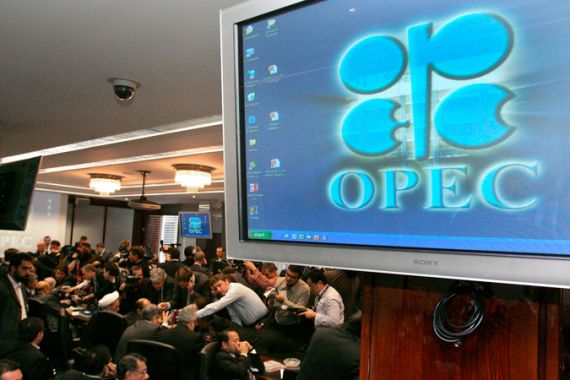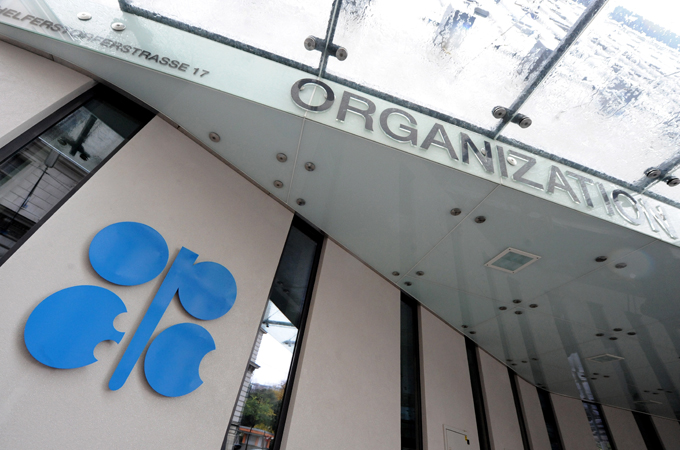OPEC makes no change in oil output
The organisation says the economic growth that pushed oil to above $90 a barrel this week is likely to slow next year.

 |
| OPEC says it is comfortable with current oil prices [EPA] |
OPEC ministers have agreed to keep oil output at current levels, citing ample inventories amid persisting global economic uncertainty and a price of just under $90 a barrel.
Ministers of the 12-nation organisation of the Petroleum Exporting Countries said after their meeting in Ecuador’s capital Quito on Saturday that they based their decision on projections showing demand for crude would grow more slowly in 2011 than this year.
Keep reading
list of 4 items‘We need you’: Solomon Islands’ support for US agency’s return revealed
Why are nations racing to buy weapons?
Parallel economy: How Russia is defying the West’s boycott
The statement also cited the “challenging risks to the fragile global economic recovery” including “fears of a second banking crisis in Europe.”
The world’s major industrialized nations continue to face “lower industrial output, lagging private consumption as well as persistently high unemployment,” the ministers added.
“The market is in balance and is stable,” Oil minister Ali Naimi of Saudi Arabia, OPEC’s biggest producer, told reporters. “The fundamentals are good.” He said after the closed-door meeting, which lasted less than two hours.
OPEC’s next scheduled gathering is June 2 in Vienna, its home. Asked whether it could convene earlier if prices were to shoot up, the group’s secretary-general, Abdulla Salem El-Badri said that is always a possibility.
“OPEC is always ready to meet when there is important change in the market,” he said.
There was much discussion about whether oil would soon broach the psychological price barrier of $100, or even climb nearer its 2008 historic peak of $147 a barrel.
Rise in demand
Venezuela’s minister, Rafael Ramirez, said he thought such a price was “proper” considering how much producers invest in removing crude from the ground.
The “no-change” announcement was widely anticipated and four of the cartel’s ministers — from Iraq, Kuwait, Qatar and Nigeria — did not even make the trip, sending lower-level delegates to this Andean capital.
OPEC, which is responsible for 35 per cent of global oil production, has not changed its output quotas since late 2008. Last month, Naimi said prices from $70 to $90 per barrel were tolerable for consumers. On Saturday, he lowered the high end to $80 when asked.
The Paris-based International Energy Agency, or IEA, said on Friday that stronger-than-anticipated consumption next year in North America and emerging Asian economies led by China could compel OPEC to boost supply “if prices continue their relentless rise.”
Issuing its global oil demand forecast, the IEA said it anticipated a rise in demand next year to 88.8 million barrels a day, 260,000 daily barrels more than previously forecast.
OPEC’s monthly market report, released on Friday, forecast a boost in demand of 1.2 million barrels per day in 2011 over this year’s levels to an average of 87.1 million.